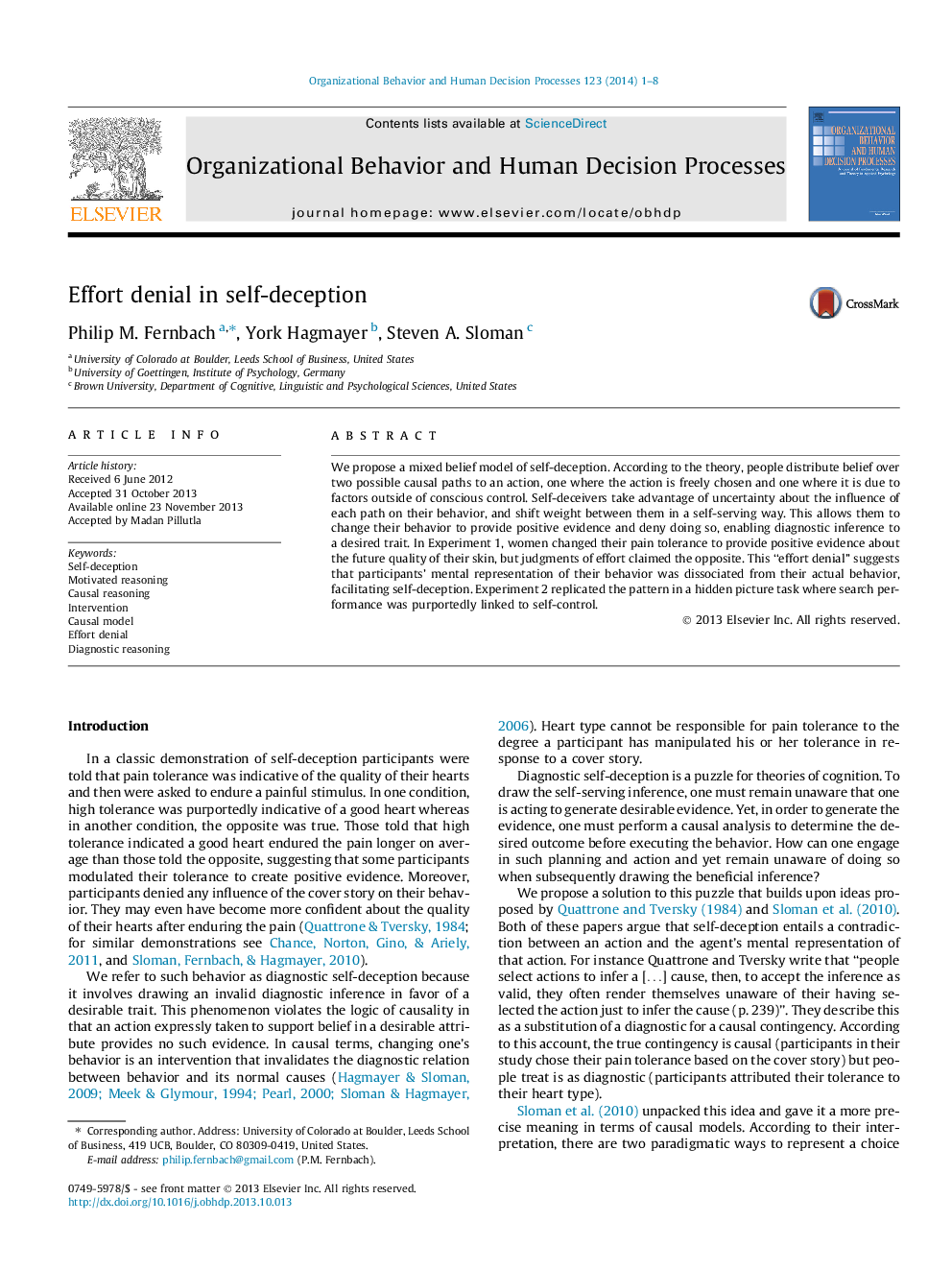| Article ID | Journal | Published Year | Pages | File Type |
|---|---|---|---|---|
| 888547 | Organizational Behavior and Human Decision Processes | 2014 | 8 Pages |
•We theorize that self-deception is enabled by the motivated construal of one’s own behavior.•We demonstrate ‘effort denial,’ people’s tendency to misrepresent the effort they put into a task.•Effort denial suggests a flexible adoption of the most beneficial construal of behavior.•In Exp. 1 women changed their pain tolerance to infer future skin quality.•In Exp. 2 subjects self-deceived and engaged in effort denial in a search task to infer self-control.
We propose a mixed belief model of self-deception. According to the theory, people distribute belief over two possible causal paths to an action, one where the action is freely chosen and one where it is due to factors outside of conscious control. Self-deceivers take advantage of uncertainty about the influence of each path on their behavior, and shift weight between them in a self-serving way. This allows them to change their behavior to provide positive evidence and deny doing so, enabling diagnostic inference to a desired trait. In Experiment 1, women changed their pain tolerance to provide positive evidence about the future quality of their skin, but judgments of effort claimed the opposite. This “effort denial” suggests that participants’ mental representation of their behavior was dissociated from their actual behavior, facilitating self-deception. Experiment 2 replicated the pattern in a hidden picture task where search performance was purportedly linked to self-control.
